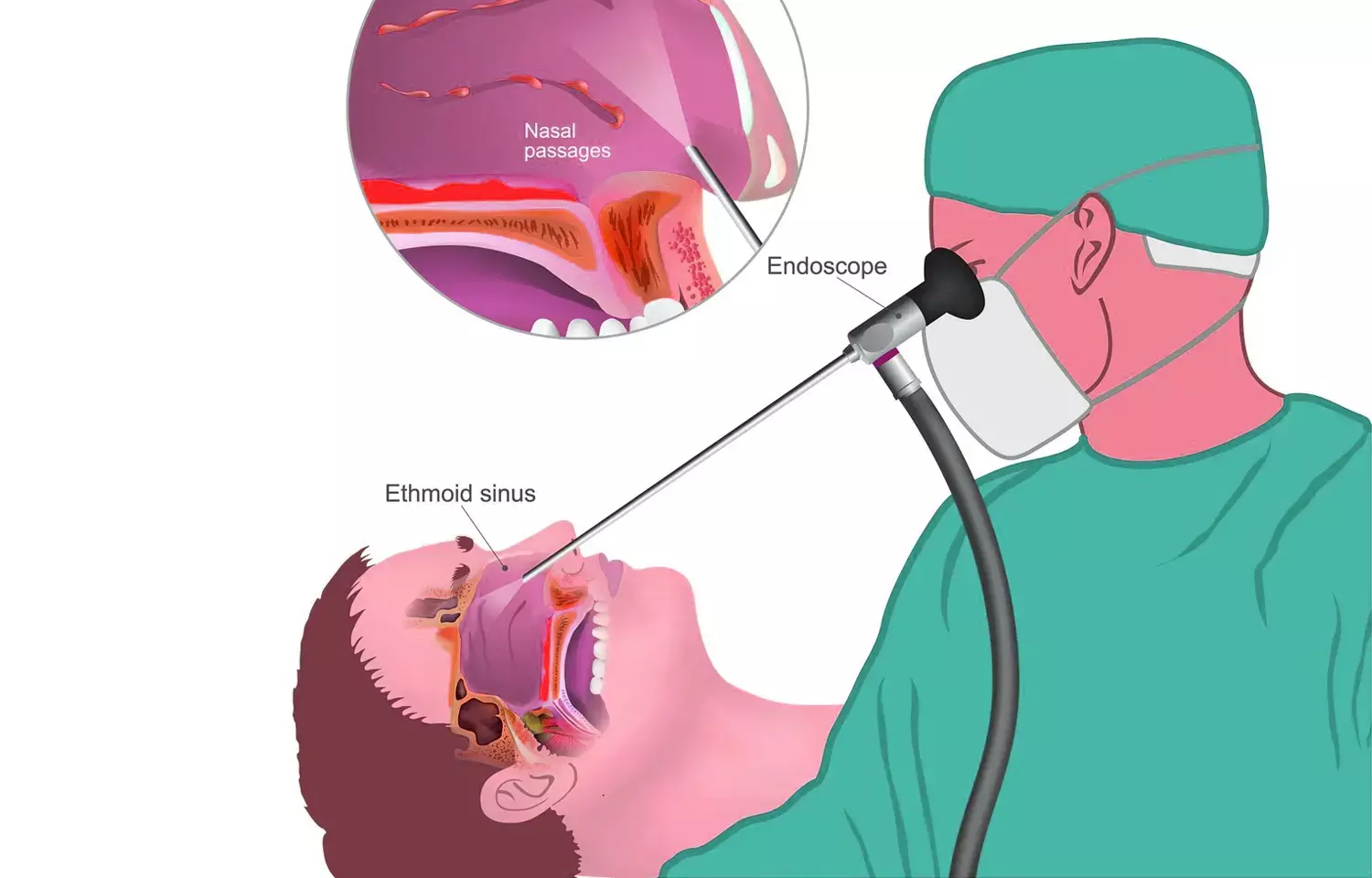- Home
- Medical news & Guidelines
- Anesthesiology
- Cardiology and CTVS
- Critical Care
- Dentistry
- Dermatology
- Diabetes and Endocrinology
- ENT
- Gastroenterology
- Medicine
- Nephrology
- Neurology
- Obstretics-Gynaecology
- Oncology
- Ophthalmology
- Orthopaedics
- Pediatrics-Neonatology
- Psychiatry
- Pulmonology
- Radiology
- Surgery
- Urology
- Laboratory Medicine
- Diet
- Nursing
- Paramedical
- Physiotherapy
- Health news
- Fact Check
- Bone Health Fact Check
- Brain Health Fact Check
- Cancer Related Fact Check
- Child Care Fact Check
- Dental and oral health fact check
- Diabetes and metabolic health fact check
- Diet and Nutrition Fact Check
- Eye and ENT Care Fact Check
- Fitness fact check
- Gut health fact check
- Heart health fact check
- Kidney health fact check
- Medical education fact check
- Men's health fact check
- Respiratory fact check
- Skin and hair care fact check
- Vaccine and Immunization fact check
- Women's health fact check
- AYUSH
- State News
- Andaman and Nicobar Islands
- Andhra Pradesh
- Arunachal Pradesh
- Assam
- Bihar
- Chandigarh
- Chattisgarh
- Dadra and Nagar Haveli
- Daman and Diu
- Delhi
- Goa
- Gujarat
- Haryana
- Himachal Pradesh
- Jammu & Kashmir
- Jharkhand
- Karnataka
- Kerala
- Ladakh
- Lakshadweep
- Madhya Pradesh
- Maharashtra
- Manipur
- Meghalaya
- Mizoram
- Nagaland
- Odisha
- Puducherry
- Punjab
- Rajasthan
- Sikkim
- Tamil Nadu
- Telangana
- Tripura
- Uttar Pradesh
- Uttrakhand
- West Bengal
- Medical Education
- Industry
Use of fine cotton swabs may reduce bleeding without compromising disinfection during Nasotracheal Intubation: Study

Nasotracheal intubation (NTI) is essential for surgeries that demand unobstructed access to the surgical area and for patients with respiratory complications. Recent study by Hirohata et al. aimed to investigate the efficacy of pre-nasotracheal intubation nasal disinfection using different cotton swab sizes. The researchers hypothesized that smaller swabs could potentially reduce bleeding while maintaining disinfection effectiveness. The randomized controlled trial involved patients scheduled for general anesthesia with nasotracheal intubation (NTI) who were divided into two groups: one using large cotton swabs (LCS) and the other using fine cotton swabs (FCS). The study collected samples to assess bacterial counts before disinfection (sample A), after disinfection with LCS or FCS (sample B), and from the endotracheal tube post-surgery (sample C). Results indicated that there was no significant difference in bacterial reduction between LCS and FCS groups after disinfection with benzalkonium chloride (BZK). However, a notable finding was that nasal bleeding occurred more frequently in the LCS group compared to the FCS group.
Patient Characteristics and Outcomes
The study involved 129 patients aged 20-70, ASA-PS class 1 or 2, with random assignment to LCS or FCS groups. The analysis revealed no significant difference in disinfection efficacy between the two swab sizes but highlighted a clear disparity in nasal bleeding incidence. Subsequent comparisons of bacterial count changes between samples A and B, and samples A and C, showed similar outcomes for both LCS and FCS groups.
Conclusions and Recommendations
The conclusion of the study recommended the use of FCS for nasal disinfection before NTI in ASA 1–2 patients due to the reduced risk of bleeding without compromising disinfection. The results emphasized that cotton swab thickness did not impact disinfection efficacy, with FCS being preferred over LCS to minimize nasal bleeding risk. The study's findings contribute to optimizing NTI procedures and enhancing patient safety during anesthesia. The research underscored the importance of selecting appropriate disinfection methods to minimize complications associated with NTI, such as nasal bleeding and potential bacteremia.
Key Points
1. The study by Hirohata et al. focused on investigating the effectiveness of pre-nasotracheal intubation nasal disinfection using different cotton swab sizes. The researchers hypothesized that using smaller swabs could potentially reduce bleeding while maintaining disinfection efficacy.
2. The randomized controlled trial included 129 patients scheduled for general anesthesia with nasotracheal intubation, divided into two groups: one using large cotton swabs (LCS) and the other using fine cotton swabs (FCS). Samples were collected to assess bacterial counts before disinfection, after disinfection with either LCS or FCS, and from the endotracheal tube post-surgery.
3. Results indicated that there was no significant difference in bacterial reduction between the LCS and FCS groups after disinfection with benzalkonium chloride (BZK). However, a noteworthy finding was that nasal bleeding occurred more frequently in the LCS group compared to the FCS group.
4. Patient characteristics included individuals aged 20-70, ASA-PS class 1 or 2, randomly assigned to either LCS or FCS groups. The analysis showed no significant difference in disinfection efficacy between the two swab sizes but highlighted a clear difference in nasal bleeding incidence
5. Comparisons of bacterial count changes between samples A and B, and samples A and C, demonstrated similar outcomes for both LCS and FCS groups, reinforcing the findings of comparable disinfection effectiveness regardless of swab size.
6. The study concluded by recommending the use of FCS for nasal disinfection before nasotracheal intubation in ASA 1–2 patients due to the reduced risk of bleeding without compromising disinfection efficacy. The research serves to optimize nasotracheal intubation procedures, enhance patient safety during anesthesia, and stress the importance of selecting appropriate disinfection methods to minimize complications like nasal bleeding and potential bacteremia.
Reference –
Makoto Hirohata et al. (2024). Microbiological Comparison Of The Disinfecting Efficacy Of Small And Large Cotton Swabs In Nasotracheal Intubation: A Randomized Trial. *BMC Anesthesiology*, 24. https://doi.org/10.1186/s12871-024-02804-2
MBBS, MD (Anaesthesiology), FNB (Cardiac Anaesthesiology)
Dr Monish Raut is a practicing Cardiac Anesthesiologist. He completed his MBBS at Government Medical College, Nagpur, and pursued his MD in Anesthesiology at BJ Medical College, Pune. Further specializing in Cardiac Anesthesiology, Dr Raut earned his FNB in Cardiac Anesthesiology from Sir Ganga Ram Hospital, Delhi.


